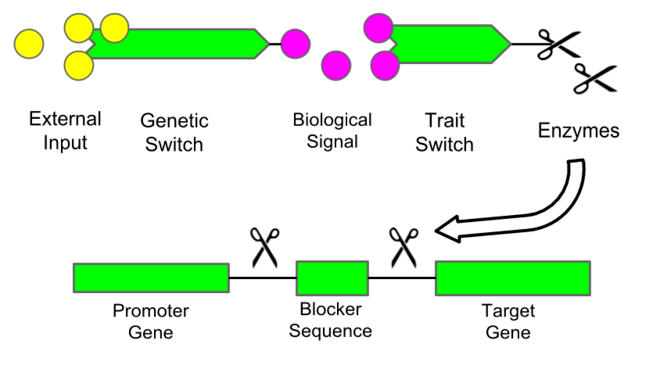I've been reading on terminator gene sequences and was wondering whether the same technology could be applied to GM crops to prevent transgene flow. Turns out Monsanto had developed the technology but pledged not to use it in their crops, from what I gather because it would have forced farmers to keep purchasing new seeds from the company annually.
Thus my question is: how feasible is it to genetically modify GM crops so that their gametes produce healthy offspring when crossed with other GM crops, but produce lethal mutations to the embryo if crossed with a non-GM crop in order to eliminate the possibility of transgene flow?

